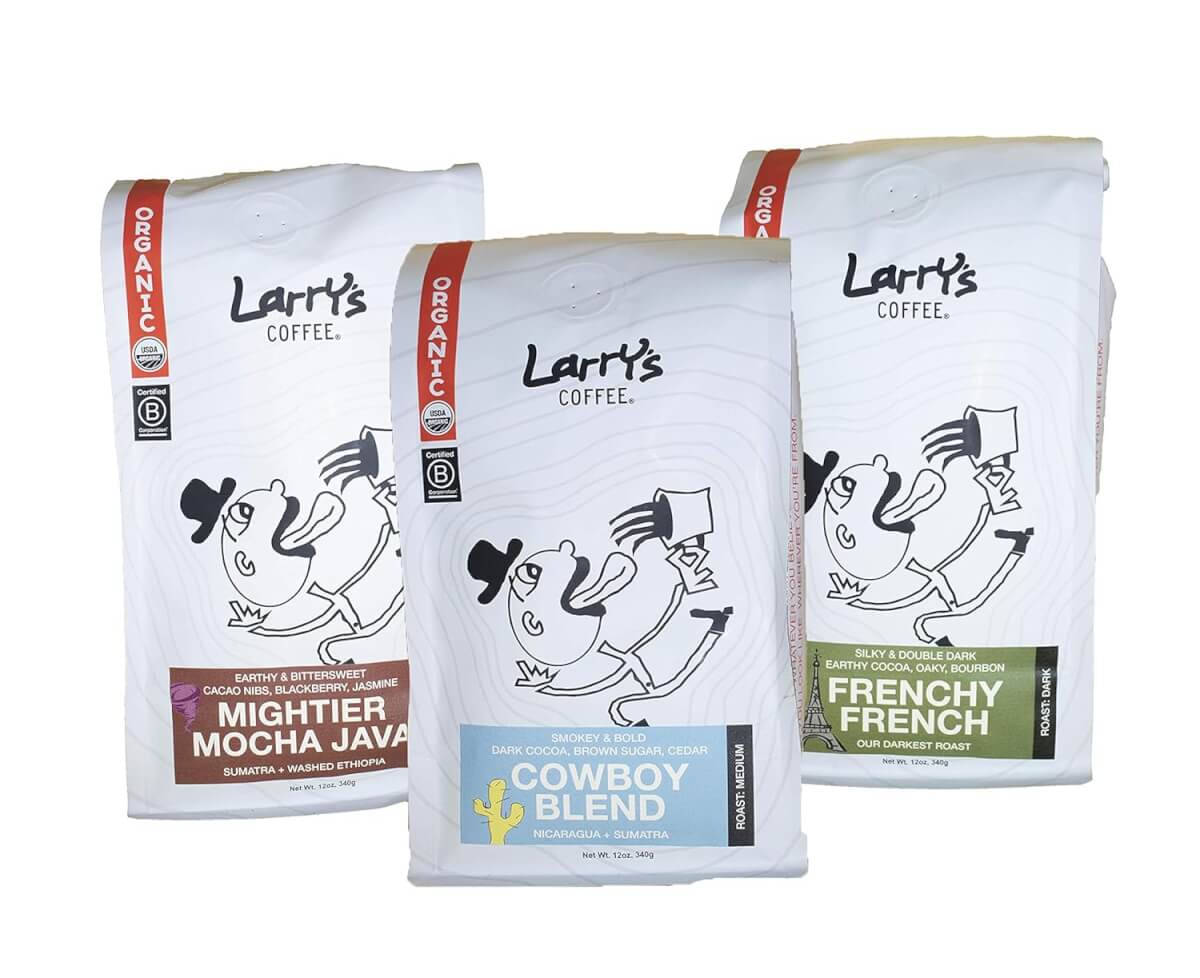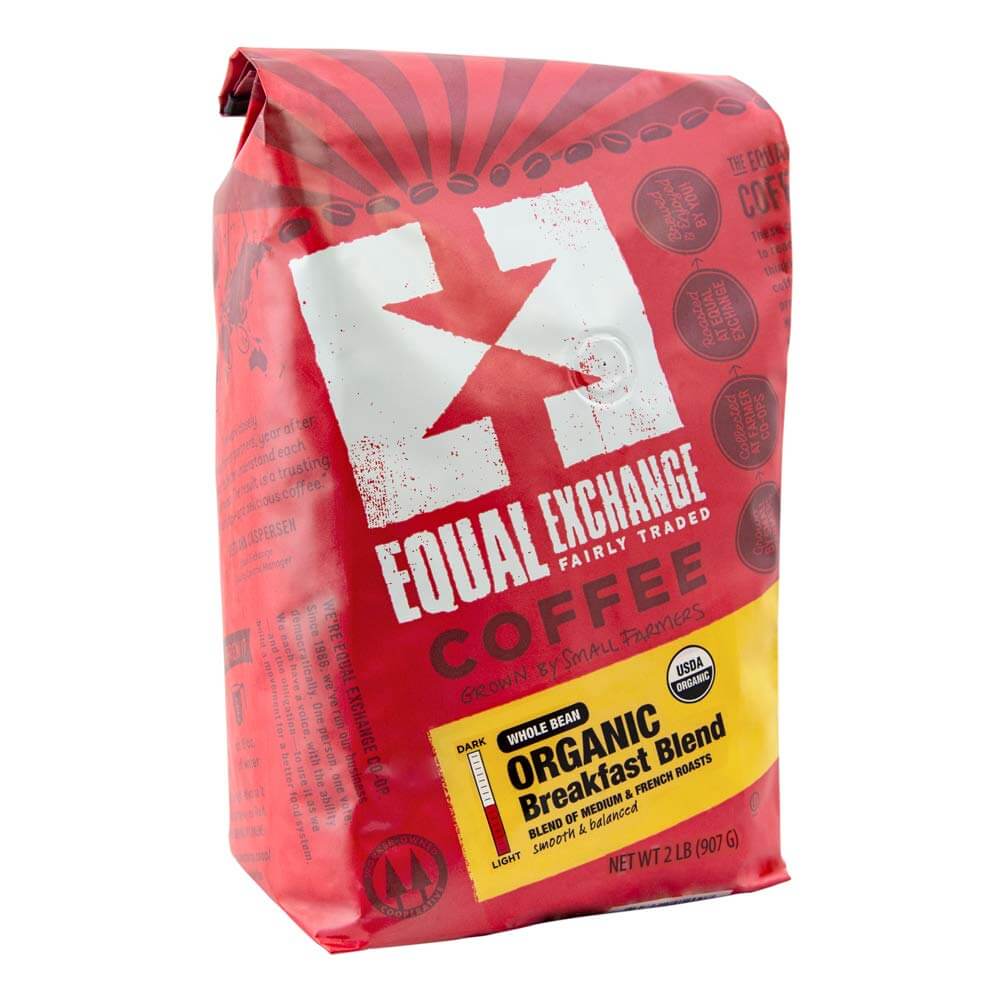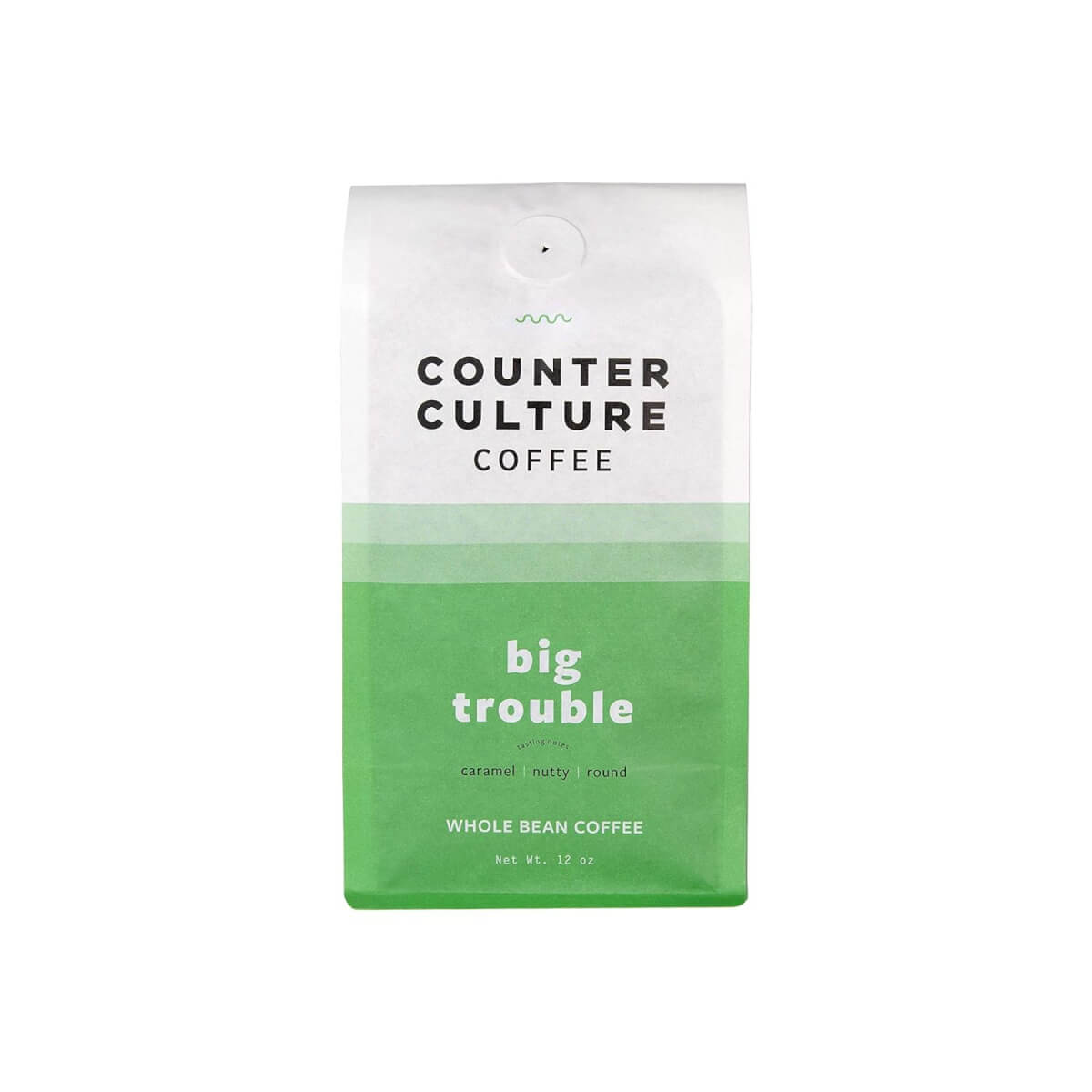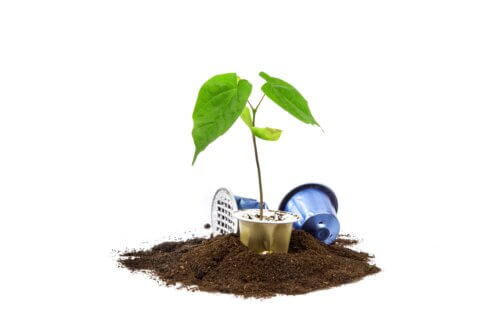There is nothing quite like that first sip of coffee. Even better when you know that your favorite brand is sustainably sourced, right? It’s a win-win for you and for the environment. The best sustainable coffee brands go beyond brewing a delicious cup of joe. They prioritize the well-being of the planet, the farmers, and the communities it interacts with throughout its supply chain.
Choosing a sustainable brand benefits you and the earth. There are many health benefits to drinking coffee. Recent research has shown that consuming coffee regularly can add years to your life and protect you from heart failure, cancer, liver disease, and even dementia. Coffee is rich in antioxidants and some nutrients like riboflavin (vitamin B2), niacin (vitamin B3), magnesium, and potassium. These aren’t present in very high amounts, but it’s worth noting, especially if you drink multiple cups daily. But it turns out you don’t have to be a coffee drinker at all to enjoy its benefits. However, simply the smell of a cup of joe can boost your academic performance by helping you score better on tests.
What makes a coffee brand sustainable?
While you may already be aware of the endless health benefits of coffee, what exactly is the difference between a sustainable coffee brand and one that is not? These producers have a commitment to the environment and the health of the earth in addition to their customers.
Environmental Responsibility:
- Ethical sourcing: Beans are sourced from farms that employ shade-grown or bird-friendly practices, conserving biodiversity and protecting ecosystems.
- Organic farming: Minimizing reliance on chemical fertilizers and pesticides reduces harm to the environment and promotes soil health.
- Water conservation: Efficient water usage during processing and roasting minimizes the brand’s environmental footprint.
- Renewable energy: Utilizing solar, wind, or other renewable energy sources for roasting and operations lowers carbon emissions.
- Sustainable packaging: Opting for biodegradable or compostable packaging materials reduces waste and promotes responsible resource management.
Social Responsibility:
- Fair trade practices: Ensuring farmers receive fair prices for their beans empowers them and supports their livelihoods.
- Direct trade relationships: Building direct relationships with farmers fosters transparency and ensures ethical treatment.
- Community engagement: Supporting the communities where the coffee is grown through social development projects or educational initiatives.
- Employee well-being: Providing fair wages, safe working conditions, and opportunities for growth to its employees.
Transparency and Traceability:
- Clear labeling: Consumers should be able to easily identify the origin of the beans, certifications, and sustainability practices employed.
- Third-party certifications: Certifications like Fair Trade, Rainforest Alliance, or USDA Organic provide independent verification of the brand’s sustainability claims.
- Supply chain transparency: Sharing information about the journey of the coffee beans from farm to cup builds trust and empowers consumers to make informed choices.
When we sip our morning coffee, the environment needs to be cared for too, right? That’s why it is so important to buy from one of the top seven most sustainable coffee brands that are recommended most across 12 expert sources. We have done the research so you can be on your way to enjoying that next cup of joe. Did we mis one? Let us know in the comments!

The List: Top 7 Eco-Friendly Coffee Brands, According to Experts
1. Larry’s Coffee
First on our list of the top seven is a company based in North Carolina. “Larry’s Coffee is possibly the most sustainable, eco-friendly, and downright delightful coffee company around,” reports Leafscore. “They’ve been in the business since 1993, under the name Larry’s Beans, and have been a force for fair trade, sustainable coffee for nearly three decades. They know their coffee and are clearly committed to sourcing the best beans and using their roasting expertise to create the freshest, highest-quality, great-tasting coffee.”

Larry’s Coffee was noted by The Sustainable Living Guide as a company that is “proud to be an environmentally friendly company.” Why? They are “sourcing coffee beans from shade-grown trees and using solar power to heat their headquarters. By purchasing exclusively Fair Trade beans, Larry’s Coffee empowers small farmers to receive a fair share of profits and build stronger communities.”
This brand earned recognition as Big Cup of Coffee‘s “Favorite Sustainable Coffee Brand.” Their detailed report gave even more insight into this popular brand. “As a coffee roaster with a mission, Larry’s coffee lives up to the expectations of a B-Certified Corporation. The Raleigh, NC-based coffee company is certified by Fair Trade, Kosher, USDA Organic, and Shade-Grown [i.e. bird-friendly]. They uphold the belief that ‘businesses can be a force for good.'”
2. Ethical Bean
Two words that simply describe sustainable coffee brands: Ethical Bean. Sustainable Selections listed it among their top picks, stating, “Ethical Bean Coffee wants you to feel confident in your cup of joe. They’ve put a unique QR code on every bag that will tell you where your coffee was grown, when it was roasted, who roasted it, and more. The company lives by the simple words: leave your mark, but tread lightly.”

Looking for coffee that won’t break the bank? “Buying organic often means paying a substantial premium, but that’s not the case with Ethical Bean Coffee,” reported Tree Hugger. “USDA certified organic, Ethical Bean Coffee is also a fair trade product, with a certification from Fairtrade International assuring high standards for working conditions, wages, and environmental stewardship. The company also purchases 100% renewable natural gas and green fuel for the head roastery and vehicles.”
Their approach to coffee also makes for a higher quality blend. “Ethical Bean is all about making coffee better, from bean to cup,” explained Brain Wave Trail. “They get their coffee beans from farms certified as organic and fair-trade. This makes sure that the farmers get a fair share of the income. Their commitment to sustainability extends to their eco-friendly packaging, making them a top choice for those looking for sustainable coffee beans.”
3. Café Mam
It is wonderful to have sustainably sourced coffee beans. But we need to think beyond just the beans we buy. “What happens when your coffee pods and bags end up in landfills? They take many years to break down, but you can fix that problem by buying from Café Mam [pronounced ‘mom’],” reported Environment. “The brand packages all of its coffee in biodegradable, shelf-stable and compostable paper bags that are durable for transportation. The revolutionary take on coffee distribution is one of the reasons the brand received a Fair Trade Certification.”
Their commitment to sustainability runs deep. “This coffee roasting company has been sourcing 100% Fair Trade, organic and shade-grown coffee from indigenous cooperatives since 1990. And as part of their Climate Change Mitigation Fund, Café Mam pays an extra 10 cents per pound that the co-ops can then put towards combating climate change in their own communities,” explained Taste of Home.
According to Home Grounds, “More often than not, specialty coffee roasters will only have one or two decafs available, but not Cafe Mam. Besides having some crucial sustainability and socioeconomic initiatives, they offer every one of their coffees a decaf or half-caf option. As befitting a coffee company with environmental concerns, they use the Swiss Water decaffeination process, which uses water rather than chemicals to gently remove 99.9% of caffeine, leaving behind 100% of the single-origin flavor.” For all of these reasons, they earned the third spot on our list.
4. Equal Exchange
A great cup of coffee just seems to taste better when you know that it’s been sustainably sourced. “Equal Exchange has been a pioneer in the fair-trade movement since 1986,” states Brain Wave Trail. “They work closely with small farmers to promote coffee farming that is sustainable and good for the environment. Their coffee beans are organic and sourced, emphasizing transparency and equity, making them a standout choice for conscious consumers.”

Ethos describes how the brand came to be: “Three founders met while working at a food co-op where they were a part of the movement to transform the relationship between the public and food producers. They took that empowering structure to the coffee industry. They set out back then to create a coffee company that was honest and fair in a way that empowered both the farmers they sourced from and the consumers they sold to. The answer to that resulted in a coffee company that is worker-owned. Today, the co-op has over 130 worker-owners and they each hold an equal share and voting rights within the company.”
How are they sustainable? “They prioritize organic farming methods and invest in community development projects,” notes Sustainable Selections. While made up of “40 small farmer organizations around the world…Equal Exchange roasts their beans at their solar-powered roastery in Massachusetts.” That means jobs for folks all over while maintaining their mission to be an incredible tasting sustainable coffee brand our experts recommend.
5. Counter Culture Coffee
Can coffee change a culture for the better? It can definitely have an impact on it. “For more than 25 years, Counter Culture has been a pioneer of coffee quality and sustainability. Their coffee department continues to cultivate relationships with growers and organizations around the world in order to build trust, improve quality, and foster transparency,” notes Big Cup of Coffee.

For this brand, there is no way around being sustainable; that’s just the way it is. “Their practice of enforcing guaranteed contracts with farmers is essential in terms of coffee quality,” notes Full Coffee Roast. “These give producers the motivation to produce the most incredible coffee and the financial freedom to try new things in their pursuit of excellence.”
Not only is this company affecting the lives of people, but they simply make great coffee! “Counter Culture Coffee has also been measuring and offsetting their carbon footprint since 2010. They have partnered with Trees, Water & People (TWP),” reports Sustainable Selections. A brand that is good for people and the environment definitely gets our vote and earns its spot on our list of the top seven most sustainable coffee brands.
6. Wonderstate Coffee
Coming in at number six on our list is a company that is also focused on more than just the taste of their coffee. Homegrounds notes that “Wonderstate Coffee (formerly Kickapoo Coffee) is another Cooperative Coffees member, but they take pride in going well beyond Fair Trade coffee price minimums. They skip the third-party certification process [and instead use] what they call ‘sourcing for the collective good.'”
Full Coffee Roast further explained how the coffee at Wonderstate “is chosen depending on preference, ethos, and local customs. They pay farmers an industry-leading 80% more than Fair Trade minimums through this Direct Trade strategy and 50% more for organic coffee. In this arrangement, farmers are prioritized over market forces.”
Let’s get into the nitty-gritty details behind production: “Wonderstate Coffee sources its coffee beans from certified organic producers, and its roastery is 100% solar-powered,” points out The Sustainable Living Guide. “Plus, they offset all of their wholesale shipping orders with carbon offsets. So you can feel good knowing that your cup of coffee is helping to shrink your ecological footprint. And with their minimum price guarantee to farmers, you can be sure that the farmers who produce their coffee are being fairly compensated.” No wonder experts rank them as one of the best sustainable coffee brands.
7. Conscious Coffees
The last on our list of the top seven sustainable coffee brands is Conscious Coffees. Leaf Score notes that this company has “been recognized by B Corp as Best for the World every year since 2015 and were 2018 Best for the World honoree, earning a community impact score in the top 10% of all Certified B Corporations internationally. This means they’re doing great things for workers, the community, and the environment, showing other coffee companies the path to sustainability.”
It makes sense why this brand has such a fitting name. “True to its name, Conscious Coffee is committed to conscious sourcing, organic farming practices, and fair trade,” reports Wanderlust Beans. “They’re also a member of the Cooperative Coffees, a cooperative of independent roasters committed to fair and sustainable trade relationships with small-scale coffee farmers.”
These producers have been at it before sustainability became mainstream. “People may think that going green is a recent trend, but Conscious Coffees began its sustainable efforts in the late 1990s,” explained Environment. “The founders purchase their beans from the same producer to provide year-round economic growth in the farming regions as part of its dedication to supporting smaller cooperatives. With every purchase, you’ll enjoy organic coffee beans in compostable bags from communities that care about the environment.”
So, there you have it, the top seven most sustainable coffee brands according to experts. Comment below to share which brand is your favorite. Like one that didn’t make our list? We’d love to hear about it!
You may also be interested in:
Sources:
- Leafscore
- The Sustainable Living Guide
- Big Cup of Coffee
- Sustainable Selections
- Tree Hugger
- Brain Wave Trail
- Environment
- Taste of Home
- Home Grounds
- Ethos
- Full Coffee Roast
- Wanderlust Beans
Note: This article was not paid for nor sponsored. StudyFinds is not connected to nor partnered with any of the brands mentioned and receives no compensation for its recommendations. This article may contain affiliate links in which we receive a commission if you make a purchase.
